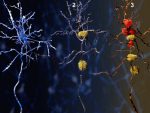AlzeCure Gets Green Light for 3rd Phase 1 Study of ACD856
Written by |

AlzeCure Pharma has been granted approval by Swedish regulatory authorities to start its third Phase 1 study of ACD856, the company’s leading therapeutic candidate for Alzheimer’s disease.
The study is designed to test multiple ascending doses of the medication, which means that the amount of ACD856 will be increased for each new group of participants. The primary goal is to evaluate the tolerability and safety of ACD856 after repetitive dosing, as well as to determine early efficacy by looking at brain activity.
“I’m very pleased that we have all regulatory approvals in place to be able to start the next study with ACD856,” Johan Sandin, chief scientific officer of AlzeCure, said in a press release. “This means we will be able to start the MAD [multiple ascending dose] study during the fall, which is in line with our previously communicated goals.”
ACD856 is being developed to improve cognitive function by enhancing neurotrophin signaling in the brain. Neurotrophins comprise a family of proteins that regulate the development and maintenance of nerve cells, and whose levels are impaired early in Alzheimer’s disease.
Preclinical studies have shown that ACD856 strengthens the communication between nerve cells and improves cognitive function, including memory.
A first Phase 1 study of ACD856 showed positive results in terms of pharmacokinetics — how a medication moves throughout the body. ACD856 also was found to be suitable for further clinical development as an oral medication for Alzheimer’s.
A second Phase 1 study with a single ascending dose design was then started with a goal of evaluating the therapy’s tolerability and safety. The company announced in August that it had received authorization to increase the tested dose as the therapy’s good tolerability enables higher doses to be used.
Besides having good tolerability, ACD856 also has a good bioavailability, which means it is able to be absorbed and used by the body.
ACD856 is the leading therapeutic candidate of NeuroRestore, the company’s development platform for conditions in which cognitive ability is impaired, such as in Alzheimer’s. The second of its two therapeutic candidates for Alzheimer’s in NeuroRestore, ACD857, is currently being tested in preclinical studies.
“Diseases with cognitive disorders, and especially Alzheimer’s disease, are areas with high need of new, more effective treatments,” said Martin Jönsson, CEO of AlzeCure.
The mechanism of action of these therapies, the company says, may have other potential indications, including in depression and cognitive impairment in Parkinson’s disease, traumatic brain injury, and sleep disturbances.






